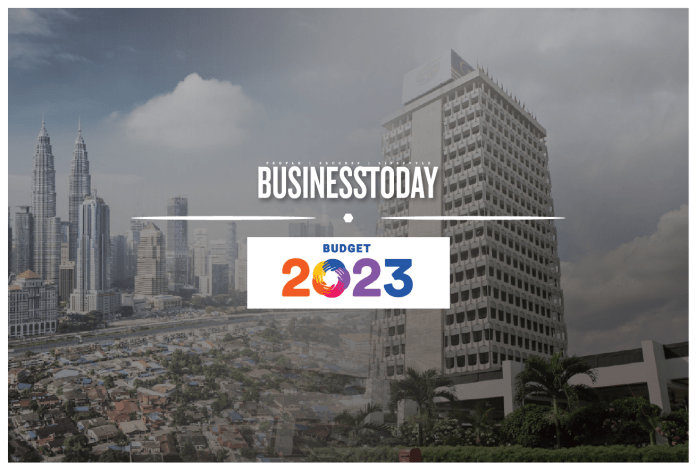Malaysians from various levels of society, regardless of their backgrounds, share a sense of hope today (Oct 7) towards the presentation of Budget 2023.
Many agree that great hopes lie on how would the government deal with the increase in the cost of living.
Finance Minister Tengku Datuk Seri Zafrul Tengku Abdul Aziz said Budget 2023 will continue to prioritise people’s wellbeing and economic reforms to ensure more sustainable economic growth in the medium term.
Under this year’s theme of “Strengthening Recovery and Facilitating Reforms towards Sustainability of Economic Resilience and Wellbeing of Keluarga Malaysia,” inclusiveness will also be prioritised, with a focus on ensuring the country’s fiscal sustainability while also making sure a fair and equitable distribution of wealth.
Recognising the significant impact of geopolitical uncertainties and climate risks on the country, sustainability measures will be included in the Budget 2023. This post COVID-19 period is critical for implementing reforms that will strengthen Malaysia’s resilience to future shocks and position our nation to be relevant and competitive in the face of new challenges, as well as to continue our journey to becoming a high-income country in the medium term.
He added, during the preparation and finalisation of the Budget 2023, the Government is committed to undertake extensive public engagement and stakeholder syndication in order to obtain inputs and recommendations in line with the identified priorities for the Budget 2023.
Budget 2023 ought to function as a blueprint for growth post-Covid-19. A big plus is that Putrajaya will not need to take on extraordinary means and measures to stimulate and support the economy as it was forced to in 2020 and 2021 during the onslaught of the Covid-19 pandemic, like nearly all countries, he said.
As a result of consultation between the Ministry of Finance and the public, the highest hope for Budget 2023 is that the government can control the price of goods in the market.
People’s grievances on issues that affect well-being and daily life will be focused, in line with the slogan ‘Keluarga Malaysia’.
The second hope of the people is the guarantee of job opportunities, especially for the young and those who have ‘dropped out’ of the world of work due to the pandemic.
Third, the government is expected to increase social protection, followed by support funds for young entrepreneurs and simplify the bank loan approval process.
In the meantime, many are also hoping for help or relaxation in monthly commitments following the gradual increase in the overnight policy rate (OPR) until next year.
The transition from recovery to reform initiatives is a key focus for the budget in comparison to Budget 2022. As the recovery momentum gains traction in the post-COVID-19 period, the Government will focus more on reforms to improve the rakyat’s wellbeing particularly income and social protection, the competitiveness of Malaysian businesses and move up the value chain, and to strengthen the nation’s resilience against future shocks while consolidating the Government’s fiscal position.
Budget 2023 will also face the challenges of increased geopolitical uncertainty and its impact on the global growth outlook, which has led to global inflationary pressures especially relating to commodity and food prices and supply disruptions, and, in the Malaysian context, more targeted and sustainable subsidy management.
During the pandemic, billions of ringgit were made available and injected into the economy to prevent a more severe recession. As a result, the country’s economy was able to quickly recover, achieving 3.1% growth in 2021 compared to a contraction of 5.5% in 2020. This achievement was made possible by various economic stimulus and assistance packages, as well as the Government’s expansionary fiscal and accommodative monetary policies, which have put the economy firmly back on a recovery growth trajectory. In 2022, the economy is expected to grow at a rate of 5.3 to 6.3%.
Even so, the debt incurred over the past two years has increased dramatically, made substantially worse by fast-rising interest rates, which makes debt servicing a lot more costly.
Malaysia’s direct federal debt stood at RM824 billion at end-March 2020, around the time when strict lockdowns were implemented to curb the spread of the virus.
Slightly over two years later, at end-June, Malaysia’s direct federal debt amounted to RM1.045 trillion, around 63% of GDP. The RM1.045 trillion does not include the RM32.08 billion owed on 1Malaysia Development Bhd bonds.
In addition to the principal amount of RM1.045 trillion, interest payments also need to be serviced. In Budget 2022, interest payments were estimated at RM43.1 billion, more than 15% of federal government revenue.
Federal government revenue in 2021 was RM221.03 billion, or 14.6% of GDP, whereas in 2022, the amount was estimated at RM234.01 billion, or 14.3% of GDP.
How would the government tackle the issue of national debt and where would the money come from to fund Budget 2023?
And as the 15th general election is set to take place no later than July next year, many anticipate that pre-election giveaways will be a part of the budget.









